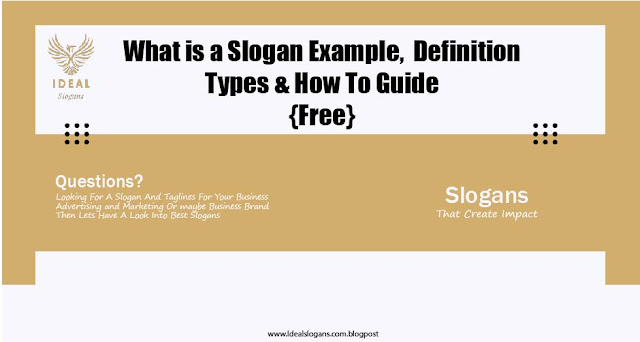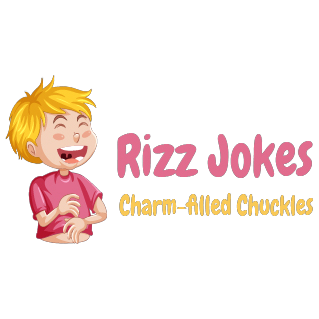A slogan is a short phrase or statement that is to capture the essence of a brand in a catchy and memorable way. It often use in marketing and advertising as a tool to communicate the key benefits or unique selling points of a product or service to potential customers.
A strong slogan can help to differentiate a brand from its competitors, create a sense of trust and credibility, and build a strong emotional connection with potential customers. A good slogan can also help to increase brand awareness and recall, making it easier for customers to remember a brand and its products or services.
Slogans can also play an important role in building a brand's identity and reputation. By crafting a slogan that perfectly captures the brand's personality, values, and mission, a company can create a powerful and enduring brand image that resonates with customers and sets the brand apart from its competitors.
In addition, slogans can also be use to create a sense of urgency or scarcity. Encouraging customers to act quickly to take advantage of a time limit offer or promotion. This can be a powerful tool for driving sales and building customer loyalty.
Overall, a slogan is a powerful tool in the marketing and advertising arsenal, and can play a critical role in building a brand's reputation. Driving sales, and creating a powerful emotional connection with customers.
 |
| What is a Slogan |
Types of slogans & Examples
- Product slogans: These slogans are to promote a specific product or product line. They are often use in advertising and marketing campaigns, and intend to create a memorable association with the product. Examples include "Just Do It" (Nike) and "Think Different" (Apple).
- Company slogans: These slogans are to promote a company as a whole, rather than a specific product. They are often use in branding and marketing & intend to create a positive image of the company. Examples include "The Happiest Place on Earth" (Disney) and "The Quicker Picker Upper" (Bounty).
- Campaign slogans: These slogans are to promote a specific campaign or initiative. They are often used in political campaigns, social campaigns, and other advocacy campaigns. They intend to create a sense of urgency and motivation among the target audience. Examples include "Make America Great Again" (Donald Trump 2016 presidential campaign) and "Yes We Can" (Barack Obama 2008 presidential campaign).
The process of creating a slogan
The process of creating a slogan typically involves several steps, including researching the target audience, identifying the key message, brainstorming ideas, and testing and refining the slogan.
- Researching the target audience: Understanding the demographics, needs, and wants of the target audience is crucial in creating a slogan that will resonate with them. This can be through market research, surveys, and focus groups.
- Identifying the key message: Once the target audience is understood, the next step is to identify the key message that the slogans convey. This message should align with the brand's overall mission and values and should be something that the target audience will find relevant and compelling.
- Brainstorming ideas: With the key message and target audience in mind, the next step is to generate a list of potential slogans through brainstorming sessions. This can be individually or in a group setting, and can involve different techniques such as freewriting, word association, and mind-mapping.
- Testing and refining the slogan: After a list of potential slogans has been generated, the next step is to test them with the target audience to see which ones resonate the most. This can be done through surveys, focus groups, or other forms of testing. Once a slogan has been select, it can be refine and polished to make sure it is clear, concise, and memorable.
Examples of successful slogans & How To make Your Slogan Successful
A successful slogan is one that is memorable, easy to understand, and effectively communicates the key message or benefit of a product or service. Some examples of successful slogans include:
- "Just Do It" - Nike: This slogan is simple, straightforward, and easy to remember. It effectively communicates the brand's message of motivation and encouragement to pursue your goals.
- "Think Different" - Apple: This slogan is memorable and communicates the brand's message of innovation and nonconformity.
- "The Quicker Picker Upper: Bounty. This slogan is memorable, easy to understand and effectively communicates the key benefit of the product (its ability to quickly clean up spills).
- "Because You're Worth It". L'Oreal: This slogan is memorable, easy to understand and effectively communicates the brand's message of self-worth and empowerment.
- "Melts in Your Mouth, Not in Your Hands M&M's. This slogan is memorable, easy to understand and effectively communicates the key benefit of the product (that the candy coating on M&M's prevents the chocolate inside from melting in your hands).
- "Eat Fresh" - Subway. This slogan is simple, easy to remember and communicates the key benefit of the product (fresh ingredients) and the brand's message of healthy eating.
Successful slogan is one that is easy to remember effectively communicates the key message of a product or service. Which aligns with the overall branding and messaging of the company.
Tips To Create A Memorable Slogan
A memorable slogan should be relevant to the brand or product. It represents and should effectively communicate the message the brand or product is trying to convey. Here are some tips for creating a memorable slogan:
- Keep it simple and easy to remember. A slogan that is too long or complex will be difficult for people to remember.
- Make it relevant to the brand or product. Slogan should be close to the brand or product it represents & help to convey the key message of the product.
- Use powerful and evocative language: Strong and emotive words can help to make a slogan more memorable.
- Consider the audience: The slogan should be make to the target audience and should resonate with them.
- Create a sense of urgency or exclusivity. A slogan that creates a sense of urgency or exclusivity can make it more memorable. As it will stand out from the competition.
- Test it: Before finalizing the slogan. Try it out on a focus group to see how it resonates with the target audience.
- Use it consistently: Consistently use the slogan across all marketing and branding materials to help it stick in people's minds.
Conclusion:
In conclusion, a slogan is a memorable phrase or statement that represents the core message of a brand or product. It serves as a powerful tool for differentiating a brand from its competitors and creating an emotional connection with consumers. There are different types of slogans, such as taglines, mantras, and positioning statements, each with their own unique purpose. To create an effective slogan, it's important to keep it short, memorable, and relevant to your target audience.
We hope this article has provided valuable insight into the world of slogans and the power they hold. We invite you to leave comments and share your own experiences with creating effective slogans. And don't forget to visit our website for more slogan ideas and inspiration.
 |
| What is a Slogan, Example, Definition, Types & How To Create It |
